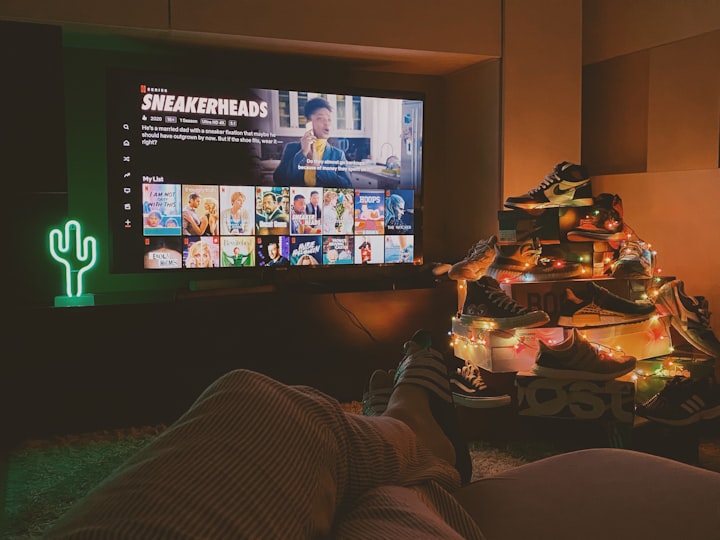LEARNING FROM NETFLIX
LEARNING FROM NETFLIX: USING TIPS FOR ENTREPRENEURS FROM MARY RANDOLPH’S BOOK

Let's see if Netflix co-founder's suggestions work.
Netflix co-founder Mark Randolph claims he never believed in business plans, considering them a waste of time. With that in mind, your business plan falls apart once you become the first customer. And that's right, in a way. Real business is not like fancy documents and textbooks. The biggest problem with aspiring entrepreneurs is that you have to invest a lot of money to make a lot of money. But where can they be found without a list of completed projects? Or at least without a realistic financial model that early investors would rely on? Yes, the idea needs to be tested in practice and proved to be viable. But if you want to grow from a small experience to a large-scale company, business plans and financial models are the basis for conversations with investors. Without strategies, interim reports or predictions, you will not know where you are going, what is acceptable to you and what is not. The outside investor should make sure that your work is not a chaotic thing, but a fairly predictable business. To keep your business plans working, study the audience that needs your product or service. The deeper, the better. Hire community representatives, visit the target market for a while, get local advice on cultural nuances and regulatory policy. A wave of subtleties that you won't be ready for can wash away the sand castle of a startup business. Studying the client will not help avoid all the mistakes, but it will definitely reduce their number. Adequacy or greed? Randolph described his first impression of visiting Amazon's office in the late 1990s as an office with workplaces, stained floors, lots of people in a small area and stray dogs in the hallways. There were dirty and watery parts. Negotiations between Netflix and Amazon took place at an old door table. Shortly before the meeting, Amazon went public with an IPO, Bezos' fortune was $ 54 million (according to the book). Randolph points to Bezos' almost coaching greed, but he makes his assumptions about why people agreed to work long hours with him and not enough money. Bezos is a strange genius. He has extraordinary intelligence, "stupidity" and childish curiosity - with which he awakens devotion in people. Now, in 2021, if the working conditions are similar to the 1997 Amazon Office, the market will not appreciate your idea. You are unlikely to persuade professionals to work overtime without offering reasonable compensation. On the other hand, you are unlikely to get good results from working with people who do not share your values and goals. The School of Survival and Negotiation The last piece is about the importance of communication. Mark Randolph talks about his experience at the National Outdoor Leadership School where people like him were blindfolded and taken to other cities without watches, wallets, junk or warm clothes. The test lasted for three days, during which it was necessary to provide yourself with food, shelter and other types of rest. That's when the Netflix co-founder learned to ask for money. Randolph writes that it is not a problem to ask an investor for $ 25,000 after asking for two cents for a meal in the middle of the street. The book states that Randolph, the father of many children, a great man, and an experienced employee, was most embarrassed to ask his mother for money. It supported many of his efforts, but Netflix's pitch was particularly challenging. I understand his feelings very well. But finding the first investment teaches us to prioritize: Do you want to avoid the hassle or start a project? Like many entrepreneurs, when I was 18, I was looking for my first money among FFFs. Family fundraising is not quick and not always successful. It only worked for me for the tenth time. However, I got 10 times less than I wanted and I had to make up for it with 20 times effort. When I was in university, I had another communication challenge. Computer games, which I have loved since childhood, and business ideas in the first semester drove me to the brink of eviction. This situation, unlike any other, improved my communication skills. I had to talk to some teachers one by one and ask them to take some again, I was exchanging useful books with others, with the third I was lucky to meet on the battlefield at Heroes of Might and Magic III. So I learned to solve problems quickly and stop them if possible. To me, these situations are summarized in two points:
- If you believe in your project, fight for it - at least for a while, it's impossible to do great things without putting it first.
- Entrepreneurship gives a lot of freedom, but it requires even more responsibility, and you have to be prepared for it.
When I read Randolph's memoir, it made me think that - regardless of geography and distance - business people test themselves for power, hear rejection in various forms, and learn from mistakes. And some of them eventually get the result for which it all started in the first place.
About the Creator
Leo mendoria
A central question that drives my work is “How can we live better” To answer that question I like to write about science-based ways to solve practical problems☂






Comments
There are no comments for this story
Be the first to respond and start the conversation.